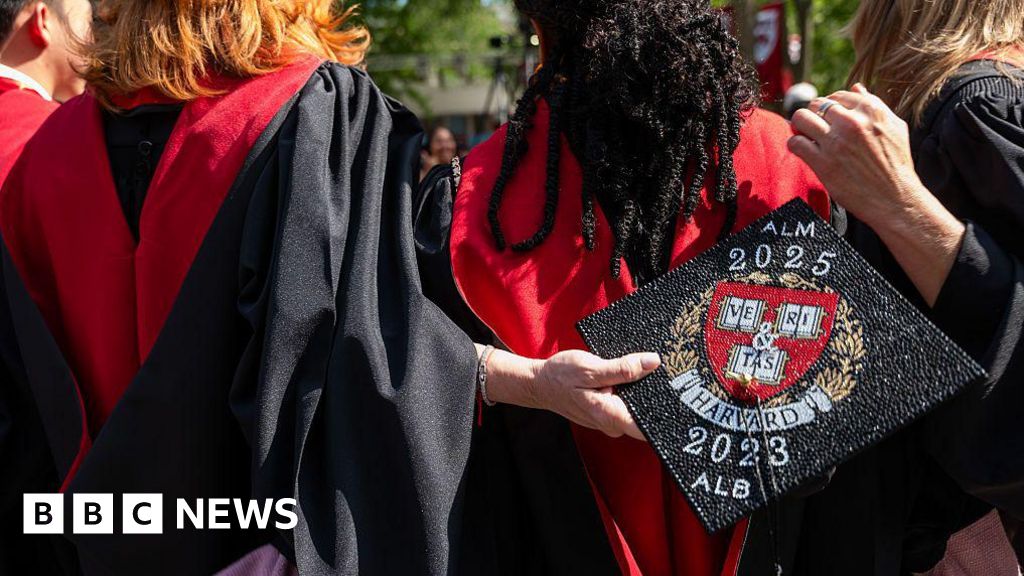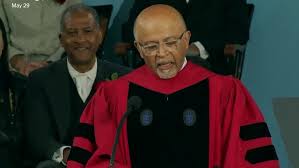Harvard University has recently been caught in the crosshairs of a legal battle with the Trump administration over its ability to enroll international students. The saga began with the Department of Homeland Security issuing a notice to Harvard, indicating its intention to withdraw the certification necessary for the university to host academics on visas under the Student and Exchange Visitor Program cSEVPc. This move culminated in the revocation of Harvard's SEVP certification on May 22, prompting an immediate lawsuit from the university and subsequent legal action to halt this decision.
In a turn of events that offered Harvard a glimmer of hope, the Trump administration decided to grant the university a 30-day extension to furnish evidence demonstrating its compliance with SEVP requirements. This development followed a crucial ruling by US District Judge Allison Burroughs, who upheld a temporary block on the government's order to decertify Harvard. Judge Burroughs hinted at issuing a preliminary injunction that would allow international students and faculty at Harvard to continue their academic pursuits while the legal battle unfolded in court.
The ramifications of this legal dispute extend far beyond Harvard and have significant implications for other US universities and the multitude of international students and researchers across the country. Legal experts closely following the case have identified key questions at the heart of Harvard's lawsuit. One fundamental query is whether the government's justifications for targeting Harvard's participation in the student visa program align with legal standards. Additionally, there is scrutiny over whether these reasons are genuine or merely a guise for penalizing Harvard based on the administration's disagreement with constitutionally protected speech.
The clash between Harvard and the Trump administration raises broader concerns about governmental overreach into academic institutions. The central question revolves around whether the US government possesses the authority to dictate the educational content, faculty hiring, and student enrollment practices of universities. The outcome of this case could potentially set a precedent with implications that ripple through the legal system, possibly reaching the US Supreme Court on an expedited basis.
Engaging with America's academic visa system, including the regulations overseeing international students, researchers, and faculty, falls under the purview of the Immigration and Customs Enforcement cICEc agency, a division of the Department of Homeland Security. Universities must obtain certification from the DHS through SEVP to participate in the program. While the DHS holds considerable authority in issuing and revoking certifications, there exist limitations, particularly in the context of constitutionally protected rights such as free speech guaranteed by the First Amendment.
Harvard's vigorous defense against the government's actions hinges on allegations of ideological bias and an infringement on its First Amendment rights. The reference to Harvard's ideological stance in official communications from the Trump administration has provoked legal experts to question the legitimacy of the government's motives. The administration's directives to Harvard emphasizing political affiliations and diversity policies have raised red flags regarding potential violations of free speech rights and due process.
As the legal proceedings unfold, the intricate balance between government regulations, university autonomy, and individual rights remains in the spotlight. Harvard's stance underscores the critical need to safeguard academic freedoms and resist efforts to wield governmental influence over educational institutions. The outcome of this legal battle will significantly shape the landscape of higher education and the boundaries of governmental interference in academic affairs.
In summary, Harvard's clash with the Trump administration over the enrollment of international students underscores the complex interplay between governmental authority, constitutional rights, and academic autonomy. The legal battle represents a critical juncture in defining the boundaries of government intervention in educational institutions and upholding fundamental principles of free speech and due process. As the case continues to unfold, the implications for universities, international students, and the broader academic community remain profound and far-reaching.


